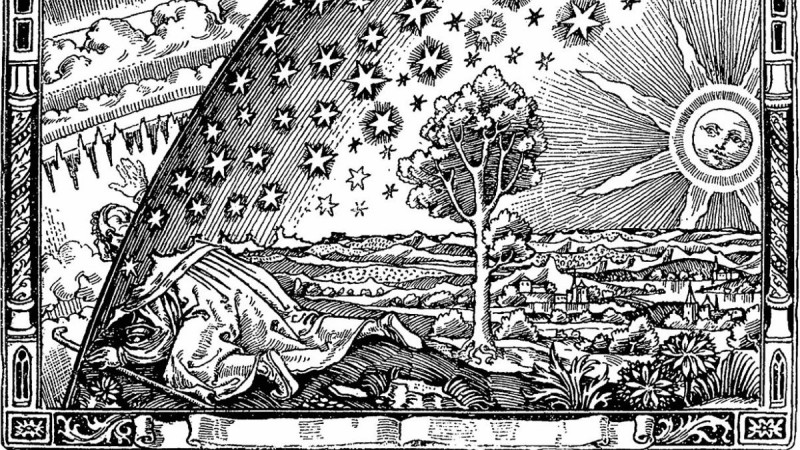.jpg) It’s quite amazing how often the Kalām Cosmological Argument, or some version of it, is still used by believers to justify their faith. It seems like a naive understanding of modern cosmology, coupled with confirmation bias, conspire to keep this tired argument on life support. In this series of posts, my intention is to explain some of the ways in which KCA is a terrible argument, one problem at a time. In this first post, I’ll focus on whether it’s reasonable to apply inductive reasoning to the universe.
It’s quite amazing how often the Kalām Cosmological Argument, or some version of it, is still used by believers to justify their faith. It seems like a naive understanding of modern cosmology, coupled with confirmation bias, conspire to keep this tired argument on life support. In this series of posts, my intention is to explain some of the ways in which KCA is a terrible argument, one problem at a time. In this first post, I’ll focus on whether it’s reasonable to apply inductive reasoning to the universe.
 Sometimes we ask the wrong questions, and answer them with bad answers. One particularly bad question is: “what was there before the Big-Bang?” There are many others, but this one requires a little mental gymnastics in order to get used to modern ideas of time and understand what the consequences are.
Sometimes we ask the wrong questions, and answer them with bad answers. One particularly bad question is: “what was there before the Big-Bang?” There are many others, but this one requires a little mental gymnastics in order to get used to modern ideas of time and understand what the consequences are.
 Michael, on his way to establish the infallibility of the Catholic Church, makes the claim that consistency is the defining characteristic of truth:
Michael, on his way to establish the infallibility of the Catholic Church, makes the claim that consistency is the defining characteristic of truth:
The hallmark of truth is consistency. Error can always be shown, at the core of the argument, to be logically inconsistent and ultimately selfrefuting. Ergo, consistency is contingent to any claim of truth.
This is of course an error of monumental proportions.
 Last night, I watched one of Glenn Beck’s shows, and it surprised me: it actually had bits of thought in it, instead of the distilled lib’ral hating I was expecting. Sure, Beck is unnervingly arrogant and assumes everyone disagreeing with him is an idiot, but, maybe under the influence of his guest Penn Jillette, he followed a coherent train of thoughts and actually was interesting. I’m disagreeing vehemently with most of what both said in the show, but I also understood something.
Last night, I watched one of Glenn Beck’s shows, and it surprised me: it actually had bits of thought in it, instead of the distilled lib’ral hating I was expecting. Sure, Beck is unnervingly arrogant and assumes everyone disagreeing with him is an idiot, but, maybe under the influence of his guest Penn Jillette, he followed a coherent train of thoughts and actually was interesting. I’m disagreeing vehemently with most of what both said in the show, but I also understood something.
 The number one cliché I hear about atheism is that lacking an objective / transcendent / absolute morality, everything is permitted, and surely we must be eating babies for breakfast. Religious people seem to be very insistent on this point, and all but attempt to push us to be immoral, telling us that we are being inconsistent if we aren’t, and that ours is a self-defeating position.
The number one cliché I hear about atheism is that lacking an objective / transcendent / absolute morality, everything is permitted, and surely we must be eating babies for breakfast. Religious people seem to be very insistent on this point, and all but attempt to push us to be immoral, telling us that we are being inconsistent if we aren’t, and that ours is a self-defeating position.
There are quite a few parts to deconstruct in those assertions. First, can the religious point(s) of view really claim objectivity, transcendence or absoluteness? Second, are the only games in town really religion and extreme relativism?
 One version of the cosmological argument relies, among other assumptions, on the following:
One version of the cosmological argument relies, among other assumptions, on the following:
Every contingent being has a cause.
Leaving aside the necessity of defining what we mean by "cause", and of explaining how such an inductive statement could reasonably apply to a unique object such as the universe, I want to focus in this post on the concept of contingency.